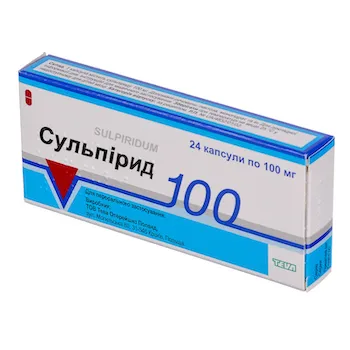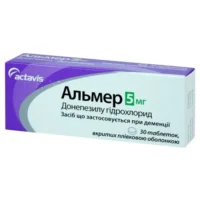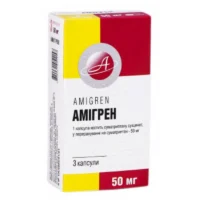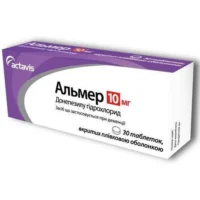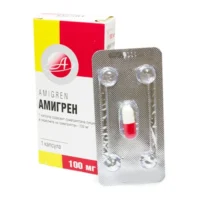Description
Sulpirid (sulpiride) Hard Capsules 100 mg. №24
Ingredients
- Each hard capsule contains 100 mg of sulpiride.
Dosage
- The usual dose is 100-200 mg daily, divided into 2-3 doses.
- Dosage may vary based on individual needs and medical condition.
Indications
- Sulpiride is indicated for the treatment of schizophrenia and other psychotic disorders.
- It helps alleviate symptoms such as hallucinations, delusions, and thought disturbances.
Contraindications
- Do not use sulpiride if you are allergic to it or have a history of neuroleptic malignant syndrome.
- It is contraindicated in patients with pheochromocytoma.
Directions
- Take sulpiride as prescribed by your healthcare provider.
- It is usually taken with food to minimize stomach upset.
Scientific Evidence
- Sulpiride, a selective dopamine D2 receptor antagonist, has been extensively studied for its efficacy in treating schizophrenia.
- Research published in the Journal of Clinical Psychopharmacology demonstrated that sulpiride is effective in managing both positive and negative symptoms of schizophrenia with a favorable side effect profile.
Additional Information
- Sulpiride may cause side effects such as drowsiness, dizziness, and weight gain.
- It is important to report any unusual symptoms to your healthcare provider.
- Avoid alcohol while taking sulpiride as it may increase the risk of side effects.
Pharmacological Effects: Sulpiride exerts its antipsychotic effects by blocking dopamine receptors in the brain, leading to a reduction in psychotic symptoms. It also has mild antidepressant properties and can improve mood and motivation in some patients.
Clinical Trials: Clinical trials have shown that sulpiride is as effective as other antipsychotic medications in managing schizophrenia symptoms. A study published in the British Journal of Psychiatry found that sulpiride was well-tolerated and significantly improved symptoms in patients with acute schizophrenia.

